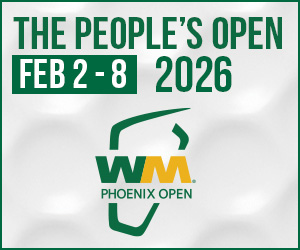
For more than 20 years, the most common question I have received from P3 leaders across North America is “How?” — “How can I include persons with disabilities in my workplace and still be a profitable business?”
My answer is always the same.
Onboarding persons with disabilities is different, not difficult — and how different depends less on their issues than yours. More specifically, onboarding depends more on the hiring/management team’s disability confidence than any accommodation might.
Are we as leaders, managers and hirers disability-confident enough to ensure bias is not playing a part in our hiring process — which, in turn, dramatically affects our onboarding capacity?
We all want the right person for the right job, but a diverse workplace without an inclusive culture is, well, like a house without a foundation, or maybe a coffee without a cup — you get the idea.
As a Diversity Educator, I receive onboarding questions all the time, which is why I like to step back and reframe the initial question of “how to onboard” to “Are we ready to onboard fairly and without bias?” and “As an organization, do we have the disability confidence to ensure that the talent pool we draw from includes as many fits for the position as possible?”
Those who can answer these questions with a resounding “yes” are ready to onboard all new employees into a welcoming, disability-confident workplace.
But there are more who are not so sure. In fact, the majority of business leaders want to be inclusive but frankly do not know where to begin. In my book, I outline 18 inclusion-isms to becoming a genuinely disability-confident employer. Here are three relating specifically to onboarding best practices:
Win, Win, Win: Onboarding is about ensuring the new hires are provided all the tools to be successful. But at the same time, the workplace benefits from their presence and, of course, the bottom line improves in some way. I call this “win, win, win.” When we onboard with disability confidence we are setting up the employee, the team and, of course, the business to be successful in our ever-changing workplace. That is the first rule of onboarding: to focus on the win, win, win.
People Don’t Come with Instructions: When bringing on new team members who disclosed in the interview that, for example, they are on the ADHD Spectrum, employers should remember no matter who or what they may know about ADHD does not mean they know this new hire and how ADHD Spectrum Disorder affects this person. It is so important to start the accommodation process open-minded and ready to learn. I like to remind everyone that, unlike IKEA furniture, people simply do not come with instructions.
Revise Revisit Reassess: No matter who the employee is — whether they identify as living with disability or not — onboarding means creating the most productive environment possible for the new member of the team. That means finding out how they “work best.”
Recently, we onboarded a new employee who self-identified with some accommodation requirements. She was quite sheepish to discuss her needs, despite her knowledge of what we do at reachAbility. We discussed her needs and revised her workspace to reflect those needs; that is what I mean by “revise”: Revise the workplace in small ways that ultimately benefit everyone. That is what happened with this new employee. She asked about glare-resistant glasses ($4 each) and next thing you know the entire team is asking to use them. I see this as a low-cost accommodation that benefits all. By checking back with her on initial accommodation and allowing her to share the advantages of the glare-reducing glasses, we all benefited from a “revisit.” Finally, there is never a good time to stop checking in anyway, so reassessing the accommodation is another way to ensure the new team members are truly the best they can be. Now, that is a true win, win, win!
 Tova Sherman is an award-winning inclusion leader and CEO of the NGO reachAbility. Her trailblazing approach to equalizing the playing field around disability at work has led her to be a highly sought-out presenter and consultant to P3 clients across Canada and the U.S. She is the author of the recently released book, Win, Win, Win: The 18 Inclusion-isms You Need to Become a Disability Confident Employer.
Tova Sherman is an award-winning inclusion leader and CEO of the NGO reachAbility. Her trailblazing approach to equalizing the playing field around disability at work has led her to be a highly sought-out presenter and consultant to P3 clients across Canada and the U.S. She is the author of the recently released book, Win, Win, Win: The 18 Inclusion-isms You Need to Become a Disability Confident Employer.
















